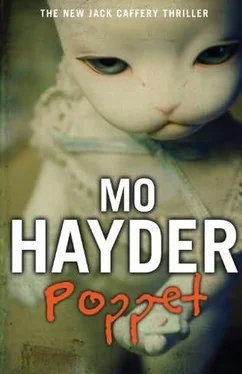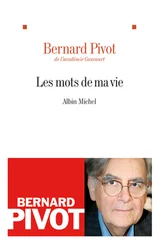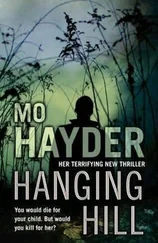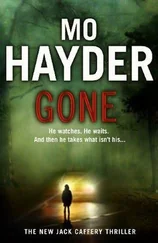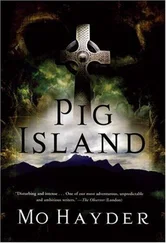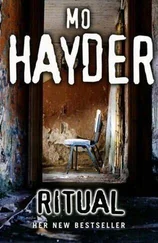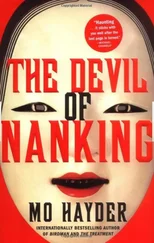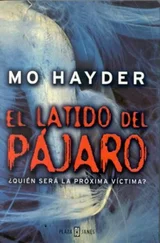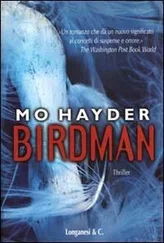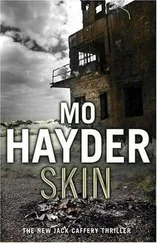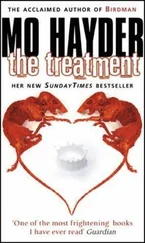Caffery decides it doesn’t matter. He’s seen and heard enough about Handel to keep going anyway. He puts on a pair of nitrile gloves – as much for the sake of cleanliness as from a fear of contaminating evidentiary material – and packs the dolls into the holdall. He seals it in a bag he gets from one of the CSIs, then carries it to the car. Throws it in the boot and climbs into the car. He lets the engine run for a few minutes then sniffs. No smell coming from the dolls. Good. He puts the car into gear and heads out of the car park.
In the nineties when Handel murdered his parents, there was still such a thing as policing in villages. If the place was too small for a station, there would be a single cop who lived in an authority-owned police house, a cop who stepped out of his front door straight on to his beat – who knew not just the locals in the village itself, but the inhabitants of every lane and every farm in the area. He would have known Isaac and his parents. The photocopied transcript of the police notebook on the day of the murders states that a call from a nearby phone box went through to the village police station. That the cop, Sergeant Harry Pilson, was on the scene within ten minutes.
Upton Farm has changed hands three times in the years since the murders. The present owners, a couple who live two miles away, bought the place five years ago and let it out as a holiday home. Caffery stops off at their house to pick up a set of keys. The husband’s out, but the wife is there. She’s a forty-something woman with angry eyes and defiantly city hair; it’s clear country living is an aesthetic choice and not what she was born to. Every inch of the place is filled with the sort of country living that townies aspire to: oilskins and designer wellies. Paintings on the wall that are self-consciously artisan in their appearance. She probably hopes he’ll admire it, but he’s known women like her before and is too old to waste his time lying. He declines her offer of coffee and asks for the keys to Upton Farm.
‘You’ve always rented it out?’
She gives a short laugh. No humour. ‘We’ve always tried to rent it out. If anyone would take it. This area is supposed to be a popular holiday destination, but I’ve only had six rentals this year. And two of those changed their mind after the first night there. Walked out and demanded their money back.’ She shakes her head. ‘I’d put it on the market, but who would want it? Only some London idiots like us who don’t know its history.’
Outside, it’s a cold, damp day. Wisps of vapour streak up from the red-and-orange forests that line the valleys and cling to the cliffs like low cloud. Caffery has the heating on full blast as he drives, along back lanes wide enough for one car, with passing places at intervals – and God help the traveller who meets a tractor coming the other way. On the passenger seat is Sergeant Pilson’s report from the day of the murders. One of the DCs at MCIT is checking whether Pilson still lives in the area. If he does, they’ll message Caffery his contact details.
In the nineties there were phone boxes deep in the countryside where the big telecommunications companies hadn’t yet got their signals. The call to Sergeant Pilson came from a phone box just to the south of Upton Farm – a woman driving past the farmhouse realized something was wrong. She drove on, got to the phone box and called. She gave her name and address, but when the investigating team tried to trace the witness her address turned out not to exist. Either she had lied, or, in Pilson’s own admission, he might have written it down incorrectly. Police press releases urging the person to come forward amounted to nothing. Ultimately it was the only loose end in a very tight case.
Upton Farm is about as high as you can get in this part of the world and as Caffery gets nearer clouds gather. The air turns whiter and his visibility dwindles. He skirts west of the dark Forestry Commission pine forest before heading northward. As he nears the farm, a few spots of rain begin to fall. It’s like crossing into the Himalayas. A sign at the roadside reads: Upton Farm Cottage – holiday lets available .
It’s similar land to where Caffery lives – but it’s higher, more lonely. He turns on to the driveway and the house comes into view. It’s a handsome three-storey Edwardian dwelling built from a blueish-grey shale. There’s a newly fitted slate roof and the windows are freshly painted. The sparkling panes reflect a perfect image of the surrounding conifers. Two large barns, constructed of wood which has been treated in pitch, stand on the opposite side of the concrete courtyard. Beyond them clouds have closed in; where distant hills should be visible is an impenetrable wall of shifting white.
Caffery parks in front of the house. A section of the concrete has been dug up and replaced, incongruously, with York stone flags. A couple of potted bay trees stand either side of the front door. An Edwardian-style boot scraper to the left of the doorstep completes the picture. Elegant rusticity.
He unlocks the front door and steps inside. The house smells of furniture polish and air freshener – everywhere are dotted dried-flower arrangements. The staircase has a polished-oak handrail and a hardwearing cord carpet runs up the centre of the risers. He’s transferred the crime-scene photos to his phone, and he opens the ones taken in this hallway and compares them to what is in front of him. In the nineties the staircase had an enclosed banister, wallpapered in stipple paint effect. Where he’s standing now, the wall was daubed with bloody handprints.
The handprints were an exact match. Handel was responsible for torturing, killing and mutilating his parents – no doubt about it. That’s not what’s wrong here. It’s something else. Caffery has no idea what. He goes slowly up the stairs, opening his mind and his ears and his skin to everything this place can communicate.
The room where Graham and Louise Handel were found is along the landing to the right of the stairway. When Isaac lived here this corridor was dark – carpeted in green Axminster with a leaf-swirl pattern. Now there are bare boards, stripped and waxed. The photos on Caffery’s phone show seven framed prints on the wall, all hanging askew from the violence that had taken place. Now the walls are bare. Painted grey.
He opens the door to the room slowly. The curtains are open, the light is chalky and flat. Here too, everything is as different as can be. An oak box bed with a scrolled leather headboard replaces the divan; a thick sheepskin rug at the foot of the bed covers the place Isaac’s parents died.
The trip-wire was between here and the bed. The bomb-disposal team had to work only inches from the mutilated bodies of Graham and Louise. The men should have been accustomed to carnage, but the experience evidently got to them – one of the team resigned his position the following day and became a teacher. Apparently he never explained his reasons to anyone.
Caffery comes in and squats, lifting a corner of the rug. The boards beneath it are as smooth and polished as the rest, but there is a slight tonal difference, a darker patina in the grain. A succession of new owners hasn’t been able to get rid of all the bloodstains.
He holds up his phone in front of the modern image of the room and zooms on the photo of Louise, pictured from this angle. She wears jogging trousers and a Dunlop T-shirt, and lies on her back, her mouth wrenched open. Blood trails from the corners of her mouth to her jaw. Her ears and some teeth are missing.
Caffery glances up and around – tries to picture the minimalist room with curtainless windows as it was in the nineties: old lumpy furniture, heavy curtains against dark windows. He closes his eyes and spins himself through the years. It’s not much of a leap for him to imagine that era, and it doesn’t bring him any closer to the nudging point of what is wrong with the whole scenario.
Читать дальше
